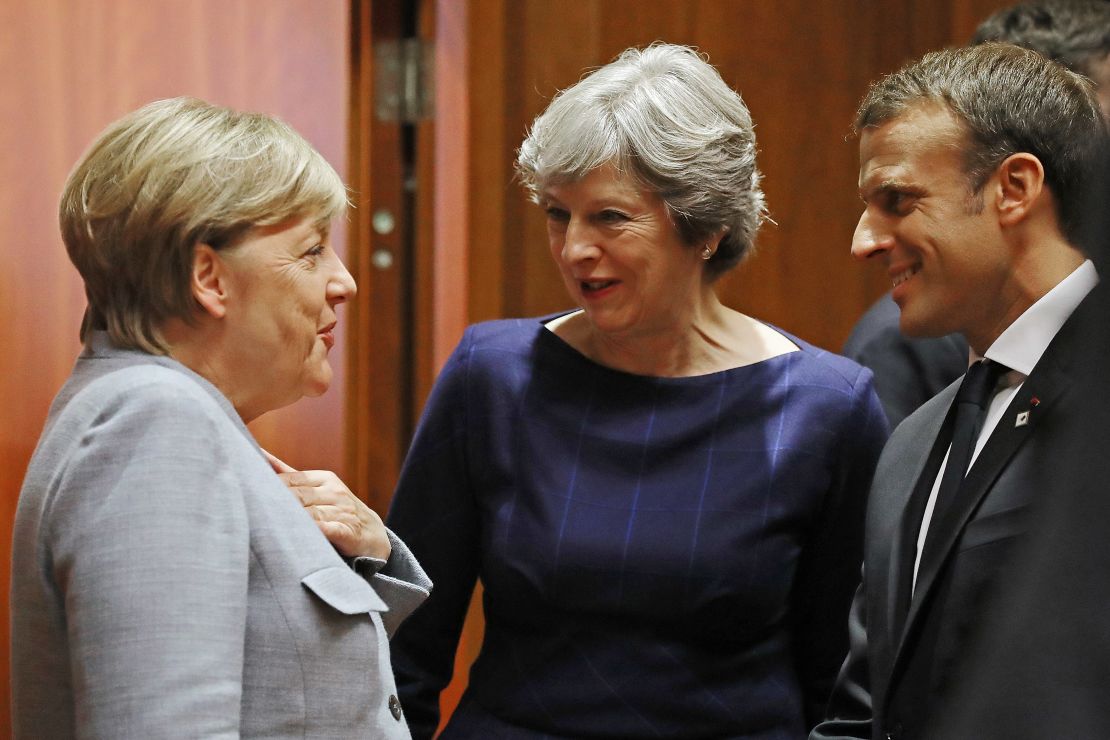Russia joined a chorus of voices Monday urging US President Donald Trump to stand by the Iran nuclear deal, as Tehran sent a stern warning that it was an “all or nothing” situation.
During his election campaign, Trump vowed to rip up the landmark deal, which obliges Iran to limit its nuclear program in exchange for the suspension of economic sanctions. Now Trump is threatening to reject an extension of the agreement by a May 12 deadline.
“Russia is consistent in its position on keeping the so-called Iran deal viable,” Kremlin spokesman Dmitry Peskov told journalists Monday, adding there was “no alternative” to the deal.
Peskov spoke as French President Emmanuel Macron was en route to Washington,where he is expected to try to convince Trump of the agreement’s merits. German Chancellor Angela Merkel is also expected to make a trip this week with the same mission.
Macron appears to have established an influential relationship with Trump, and in an interview with “Fox News Sunday,” he warned the US President about clashing with his European allies. France, Germany and the UK helped the Obama administration broker the Iran deal in 2015 and have all called on the US leader to honor it.
“You cannot make a trade war with your allies,” Macron said in the Fox interview. “It’s too complicated if you make war against everybody, you make trade war against China, trade war against Europe, war in Syria, war against Iran, it doesn’t work. You need allies.”

Macron also said there was no alternative plan to the agreement should it be shelved.
Iranian Foreign Minister Javad Zarif backed Macron’s position on the agreement, known formally as the Joint Comprehensive Plan of Action (JCPOA).
“President Macron is correct in saying there’s no ‘Plan B’ on JCPOA. It’s either all or nothing,” he tweeted Monday.
“European leaders should encourage President Trump not just to stay in the nuclear deal, but more importantly to begin implementing his part of the bargain in good faith.”
Zarif on Sunday made clear that Iran had no intention of accepting new concessions and warned of consequences should the deal be scrapped.
“We will make a decision based on our national security interests when the times comes,” he told reporters in New York. “But whatever that decision will be, it won’t be very pleasant to the United States.” He later told CBS that one option was “resuming at a much greater speed our nuclear activities.”
Tehran maintains its nuclear program was peaceful, and Zarif said if Iran resumed its nuclear activities, it would not be for the purpose of developing a nuclear weapon. He noted that CIA Director Mike Pompeo recently said in testimony at his confirmation hearing to become secretary of state that Iran was not “racing towards a bomb.”
Trump is required to sign off an a series of waivers for the Iran deal every 120 and 180 days. He has so far signed off on the sanctions waivers that keep the agreement alive, but had said France, Germany and the UK must “fix the terrible flaws” of the agreement by May 12 or he would refuse to sign off on this round.
He has argued the agreement is too lax and has criticized Iran over its ballistic missile program and for backing the Syrian government in that country’s seven-year conflict.
European Union leaders had sought to impose additional sanctions on Iran over the Syrian conflict, as a way to appease Trump and save the nuclear accord. But they have so far failed to gain enough support from its member states.
Correction: This story has been updated to give the correct name of the program "Fox News Sunday."
CNN’s Elise Labott contributed to this report.



